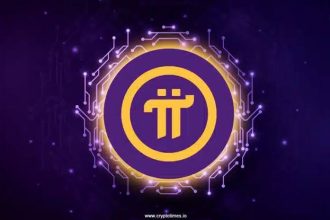Vietnamese Authorities Launch Comprehensive Investigation into Pi Network’s Activities Amid Concerns of High-Profit Claims and Regulatory Complexity
In response to growing concerns over the operations of the cryptocurrency platform Pi Network, Vietnamese authorities have initiated a thorough investigation into its activities within the country. The decision came after Lieutenant General Le Xuan Minh, Deputy Head of the Cybersecurity and High-tech Crime Prevention Division (A05) under the Ministry of Public Security, expressed unease about the complexities of virtual currency models and the potential risks they pose to the public.
One of the primary reasons cited by Lieutenant General Le Xuan Minh for the investigation was the alluring high-profit claims made by Pi Network, which authorities deemed to be unrealistic and possibly deceptive to its participants. Such promises of substantial returns in the online environment have raised suspicions about the legitimacy of the platform.
Furthermore, the authorities have raised concerns about the resemblance of certain Pi Network activities to pyramid and binary business models. These models involve a hierarchical structure where individuals pay those above them, leading to fears of potential pyramid schemes and fraudulent practices.
Here are five reasons why Vietnamese Authorities launched an investigation into Pi Network:
1. High-profit claims: The authorities are concerned about the promises of high profits made by Pi Network ($314,159), which they believe are unrealistic and potentially misleading to participants.
2. Pyramid and binary business models: Lieutenant General Le Xuan Minh highlighted signs of pyramid and binary business models within Pi Network’s activities. These models involve individuals paying the person above them in a hierarchical structure, raising concerns about potential fraudulent practices.
3. Lack of regulation and complexity: Virtual currency models like Pi Network are difficult to regulate, which poses challenges for the authorities in monitoring and controlling such activities.
4. Suspicions of scams and data collection: Pi Network has faced warnings regarding its lack of transparency as a blockchain project, leading to suspicions of potential scams and unauthorized data collection practices.
5. Violation of cryptocurrency regulations: Cryptocurrency transactions are not permitted and violate the law in Vietnam. As Pi Network involves cryptocurrency-related activities, it has drawn the attention of the authorities for potentially operating outside the legal framework.
These reasons have prompted the Vietnamese Authorities to launch a comprehensive investigation into Pi Network’s activities in the country to safeguard the interests of the public and ensure compliance with the law.
Addressing the challenges of regulating virtual currency models, Lieutenant General Le Xuan Minh emphasized the complexity of these platforms, stating that they have been difficult to monitor and control effectively.
Pi Network, introduced in early 2019 and gaining significant popularity in Vietnam since 2021, has been under scrutiny for its lack of transparency as a blockchain project. Authorities have expressed apprehension about potential scams and unauthorized data collection practices.
Cryptocurrency transactions are currently prohibited by Vietnamese law, and authorities are concerned that Pi Network’s activities may be operating outside the legal framework.
In light of these issues, the Cybersecurity and High-tech Crime Prevention Division (A05) is collaborating with local police to conduct a comprehensive investigation into the platform’s operations. Lieutenant General Le Xuan Minh assured the public that they would provide further details once the relevant cases have been thoroughly examined and processed.











